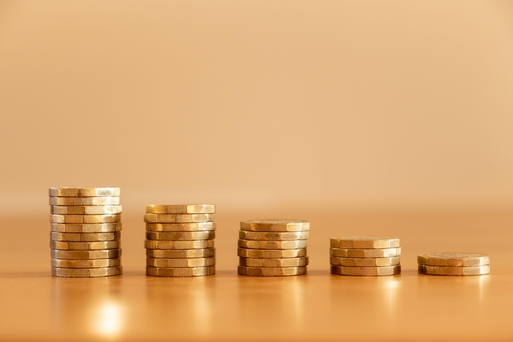Consumer price index (CPI) inflation hit 9 per cent last month, its highest rate in four decades.
CPI Inflation rose by 2 percentage points between March and April this year – the sharpest monthly increase since 1980.
The Bank of England previously said inflation could hit 10 per cent by the end of 2022.
This recent surge was driven by rising household energy bills, with the energy price cap increasing by £693 (54 per cent) for the typical family in April. Households had already seen petrol prices reach their highest real rate since 2012, and some of the impact of higher energy prices is still to come through with rising costs for businesses likely to be passed on to consumers later in the year.


Other big drivers of inflation include food prices which rose by 6.7 per cent (the highest level since 2011), and durable goods, where prices rose 8.5 per cent (the second highest rate on record).
Foreign Secretary Liz Truss has suggesed tax cuts are the best way to mammoth ongoing cost of living issues, telling BBC Radio 4’s Today programme: “The key response to the huge global inflation crisis we’re facing is to make sure our economy grows – that’s what’s going to help people.
“To do that we need to attract business investment… What we know is a low-tax economy helps deliver that business investment, helps deliver those jobs.”
Labour’s shadow chancellor Rachel Reeves reiterated her previous calls for an emergency budget, stating this morning: “Today’s inflation data will add to the worries families already face as prices soar and pay packets are crunched.
She added: “Our country faces a cost of living crisis, and a growth crisis. Neither are inevitable but a consequence of government policies and Conservative choices. We need an emergency Budget now from the Government to tackle the cost of living crisis, and we need a real plan for growth so we have a fairer and more prosperous economy.”
Last month the government hiked National Insurance contributions at the same time as the energy price cap rose, along with council tax in many local authorities.
Analysis of the latest data by the Resolution Foundation think tank shows that inflation is – at 10.2 per cent – significantly higher for the poorest tenth of households than it is for the richest tenth of households (8.7 per cent). This is because lower income households spend a greater share of their family budgets on energy bills where prices are rising sharply.
Jack Leslie, senior economist at the Resolution Foundation, said: “Nobody knows how long these pressures will last, or how workers will respond via higher wage demands, which is why the Bank faces a tough judgement on the pace and scale of interest rate rises.
“But one thing is certain – the government must provide further targeted support for those lower income families at the sharp end of this crisis.”
Kitty Ussher, chief economist at the Institute of Directors, said: “While this high rate was to be expected given the rise in the retail energy price cap, it is nevertheless shockingly high.
“Business leaders tell us that the UK macroeconomy is now their number one negative issue, driven by worries over inflation. As a result, firms are becoming more reluctant to invest, storing up problems for the economy in future.
“If the Chancellor intends to intervene in advance of the further price cap rise in the autumn, he should make that clear, to start bringing expectations of future inflation back down.”
Liberal Democrat Leader Ed Davey has called for an emergency VAT cut to help struggling consumers, saying: “Families and pensioners on the brink need saving from soaring inflation but this Conservative government is nowhere to be found.
“We need an emergency VAT cut now to slash prices at the till and fuel pump today. The warning lights are all flashing red and Boris Johnson hasn’t a second to lose.”

